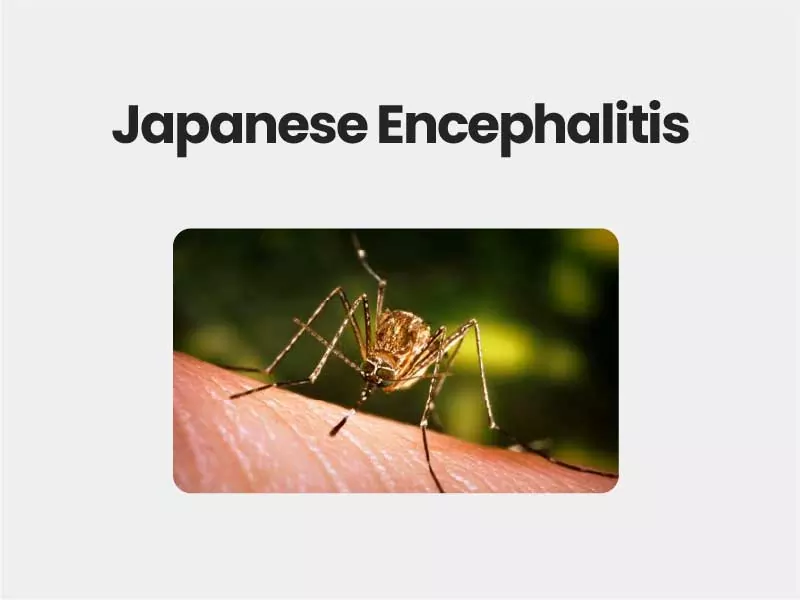
Japanese Encephalitis
It is a disease caused by a flavivirus that affects the membranes around the brain.
Japanese encephalitis virus (JEV) is also a major cause of Acute Encephalitis Syndrome (AES) in India.
The disease is transmitted to humans through bites from infected mosquitoes of the Culex species.
These mosquitoes breed mainly in rice fields and large water bodies rich in aquatic vegetation.
Migratory birds along with pigs in the community also play an important role in the transmission of JE from one area to other areas.
Most people infected with JE do not have symptoms or have only mild symptoms.
However, a small percentage of infected people develop inflammation of the brain (encephalitis), with symptoms including sudden onset of headache, high fever, disorientation, coma, tremors and convulsions.
There is no antiviral treatment for patients with JE.
Treatment, available, is supportive to relieve symptoms and stabilise the patient.
Safe and effective JE vaccines are available to prevent the disease.
In India, mass vaccination with JE vaccine was started in a phased manner subsequent to the major outbreak in 2005.
JE vaccination is also included under the Universal Immunization Program of the Government of India.
Enroll today with the best civils service academy and take your first step towards your Civils journey.
Feel free to reach out to us for any inquiries, collaborations, or support. We’re here to help.

